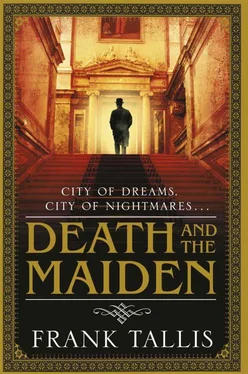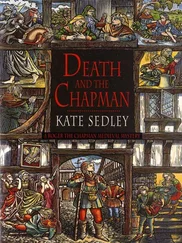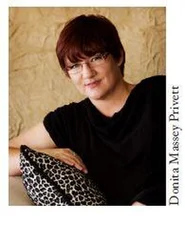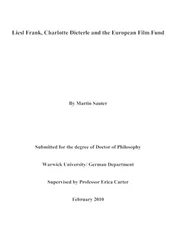Frank Tallis - Death And The Maiden
Здесь есть возможность читать онлайн «Frank Tallis - Death And The Maiden» весь текст электронной книги совершенно бесплатно (целиком полную версию без сокращений). В некоторых случаях можно слушать аудио, скачать через торрент в формате fb2 и присутствует краткое содержание. Жанр: Исторический детектив, на английском языке. Описание произведения, (предисловие) а так же отзывы посетителей доступны на портале библиотеки ЛибКат.
- Название:Death And The Maiden
- Автор:
- Жанр:
- Год:неизвестен
- ISBN:нет данных
- Рейтинг книги:5 / 5. Голосов: 1
-
Избранное:Добавить в избранное
- Отзывы:
-
Ваша оценка:
- 100
- 1
- 2
- 3
- 4
- 5
Death And The Maiden: краткое содержание, описание и аннотация
Предлагаем к чтению аннотацию, описание, краткое содержание или предисловие (зависит от того, что написал сам автор книги «Death And The Maiden»). Если вы не нашли необходимую информацию о книге — напишите в комментариях, мы постараемся отыскать её.
Death And The Maiden — читать онлайн бесплатно полную книгу (весь текст) целиком
Ниже представлен текст книги, разбитый по страницам. Система сохранения места последней прочитанной страницы, позволяет с удобством читать онлайн бесплатно книгу «Death And The Maiden», без необходимости каждый раз заново искать на чём Вы остановились. Поставьте закладку, и сможете в любой момент перейти на страницу, на которой закончили чтение.
Интервал:
Закладка:
‘Disgraceful.’
‘It has obviously been written by an orchestral player and there are some whom I suspect; however, I cannot make an accusation without being absolutely confident that I have the right man.’
‘And you want my help?’
‘Precisely. I want you to identify the author of this article.’
Mahler tossed the paper disdainfully across his desk.
‘Other than the fact that he is an orchestral player and an anti-Semite — which you no doubt already know — there is nothing more I can say.’
The director frowned. ‘I thought …’ He chewed the nail of his index finger. ‘I thought a man with your understanding of human behaviour would …’ He produced a long, disappointed sigh.
‘A printed newspaper article is somewhat impersonal,’ said Liebermann. ‘All the small details which I might find revealing have been removed. It is a sanitised version of the handwritten original. Now, if you had that in your possession …’
‘The editor of the Deutsche Zeitung isn’t going to give me the original,’ said Mahler flatly.
‘Perhaps not, but you are the director of the court opera. A man in your position could appeal to the lord chamberlain.’
‘Prince Liechtenstein won’t want to get involved. Palace aides are always weary of being accused of meddling, and now even more so as the election approaches.’
‘Then I am afraid …’
The director nodded. ‘I understand. Forgive me, Herr Doctor, I have wasted your time. Please submit an invoice and you will be remunerated.’
‘That really won’t be necessary,’ said Liebermann, a little embarrassed.
‘Then I hope you will accept some tickets to the opera with my compliments.’
‘I will indeed,’ Liebermann replied. Gesturing at the discarded newspaper he added: ‘And I would be happy to assist you in due course, should you obtain the original of this offensive article.’
‘That is very unlikely,’ said Mahler. ‘But I will try.’ He shrugged. ‘One never knows.’
Przistaupinsky arrived with a tray laden with china. He cleared a space on the director’s desk, poured two cups of tea and indicated the sugar bowl.
‘How did you get on the other day?’ asked Mahler. ‘Did you and the inspector learn anything?’
‘The interviews proved very useful.’
‘I’m still rather confused as to the purpose of your visit.’
‘Procedures must be observed,’ said Liebermann disingenuously.
The director wasn’t fooled. He looked at Liebermann sceptically before his features softened. ‘Did you read the reviews of Rienzi ?’
‘They were outstanding. I noticed Herr Schmedes was singled out.’
Deep laughter lines appeared on Mahler’s face. ‘That was a remarkable thing you did, Herr Doctor.’ The director raised his teacup as if proposing a toast.
Liebermann inclined his head, hoping very much that he would be afforded another opportunity to impress the director.
17
Amelia Lydgate lived among a people for whom music was not so much a pleasure as a way of life. In this respect, the difference between the German and English character was most pronounced. Not wishing to appear deficient, Amelia had asked Liebermann to recommend some concerts. He had immediately assumed the role of musical mentor and had taken her to a recital of Bach’s English Suites . A second concert followed, then a third, then a fourth. In the space of only a few months, attending piano recitals together had become a regular event. Liebermann recognised his own duplicity. These musical outings provided him with a perfect pretext for seeing Amelia. He had previously been obliged to fabricate all kinds of justifications, but now they had found a suitably innocuous reason for meeting and neither party expressed any wish to alter the arrangement.
Pretexts were necessary because Liebermann had once been Amelia Lydgate’s doctor. He had treated her at the general hospital for a hysterical illness that had arisen because of a trauma: she had been importuned by a man who was supposed to be acting in loco parentis . Needless to say, this unfortunate history complicated Liebermann’s relationship with Amelia — a relationship that had continued beyond the termination of treatment.
After attending concerts at the Bosendorfersaal, it had become their custom to stroll down Herrengasse to Cafe Central, where a candlelit table awaited them in the glass-covered courtyard. First they would discuss the recital, then Amelia’s medical studies — anatomy, physiology, diseases of the blood — and finally they would discuss books, philosophy and, very occasionally, psychoanalysis.
Amelia was wearing a plain blouse, grey jacket and matching skirt. She had tied her hair back with a silver ribbon, revealing the luminous red stones of her pendant earrings. The taut whiteness of her neck was completely exposed and her skin gleamed like polished marble. Liebermann made an effort to concentrate more carefully on what his companion was saying. She was praising a book by Goethe called Elective Affinities , a work that Liebermann had not read.
‘It is a most interesting piece of writing,’ said Amelia. ‘A romantic novel, but unlike any other I have ever before encountered. In a sense, it is as much about natural philosophy as it is about the lives of the protagonists. In an early chapter the author draws attention to the similarities that exist between chemical reactions and human behaviour, and by doing so raises profound questions relevant to psychology.’ She picked up her cup and took a minute sip of Earl Grey tea. When she resumed speaking, her lips were glistening. ‘Some substances meet as friends, hastening together, like the mixture of wine and water. Other substances are obdurate strangers and refuse to unite. Oil and water will separate immediately even after they have been shaken together. It is as if preferences are being expressed.’ Amelia leaned forward. ‘In its day, Elective Affinities was the subject of considerable controversy and was regarded as being immoral.’
Liebermann looked perplexed.
‘Why was that?’ he said. ‘Goethe’s observation appears harmless enough.’
‘Not at all,’ Amelia replied, shaking her head. ‘Quite the opposite.’ The pendant earrings swung and the stones flashed. ‘Astute members of the clergy identified in Elective Affinities a challenge to Church doctrine. By drawing these analogies Goethe was showing that inanimate matter sometimes appears to exhibit attributes — free will, for example — associated with higher explanations. Thus he gives us cause to question their legitimacy.’
‘Ah, yes,’ said Liebermann. ‘I see what you mean. Choices are made by the brain, not the soul.’
‘Indeed,’ replied Amelia. ‘However, the principal objection to Elective Affinities concerned the nature of …’ Amelia hesitated for a moment before saying, ‘… love.’ Liebermann tilted his head to one side, adopting the attitude of one eager to hear more. ‘Love is the most elevated state,’ Amelia continued. ‘It was considered almost sacrilegious to suggest that love has a material origin, that lovers are drawn together not by destiny but by the irresistible power of some chemical attraction.’
They gazed into each other’s eyes and the moment became uncomfortably intense. A waiter dashed past and the candle between them flickered.
Liebermann looked away. ‘Yes,’ he said, embarrassed. ‘I can see that.’
When he had recovered his composure he turned to face Amelia. She was still staring at him. A vertical line had appeared on her forehead.
‘Would you like to read it?’ Amelia reached into her reticule and pulled out a slim volume bound in black cloth. She passed the book across the table.
Читать дальшеИнтервал:
Закладка:
Похожие книги на «Death And The Maiden»
Представляем Вашему вниманию похожие книги на «Death And The Maiden» списком для выбора. Мы отобрали схожую по названию и смыслу литературу в надежде предоставить читателям больше вариантов отыскать новые, интересные, ещё непрочитанные произведения.
Обсуждение, отзывы о книге «Death And The Maiden» и просто собственные мнения читателей. Оставьте ваши комментарии, напишите, что Вы думаете о произведении, его смысле или главных героях. Укажите что конкретно понравилось, а что нет, и почему Вы так считаете.












